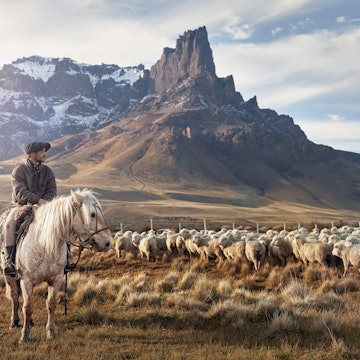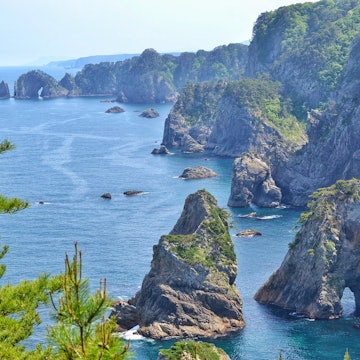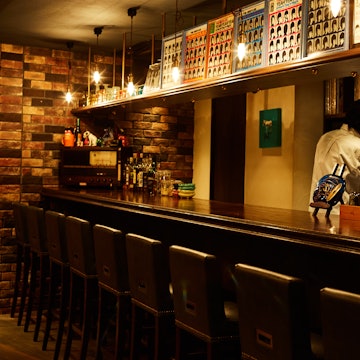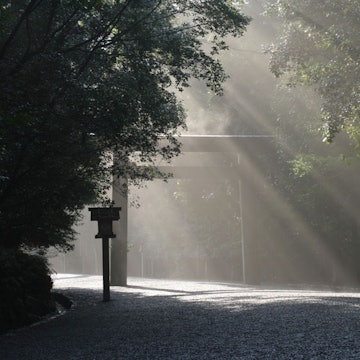
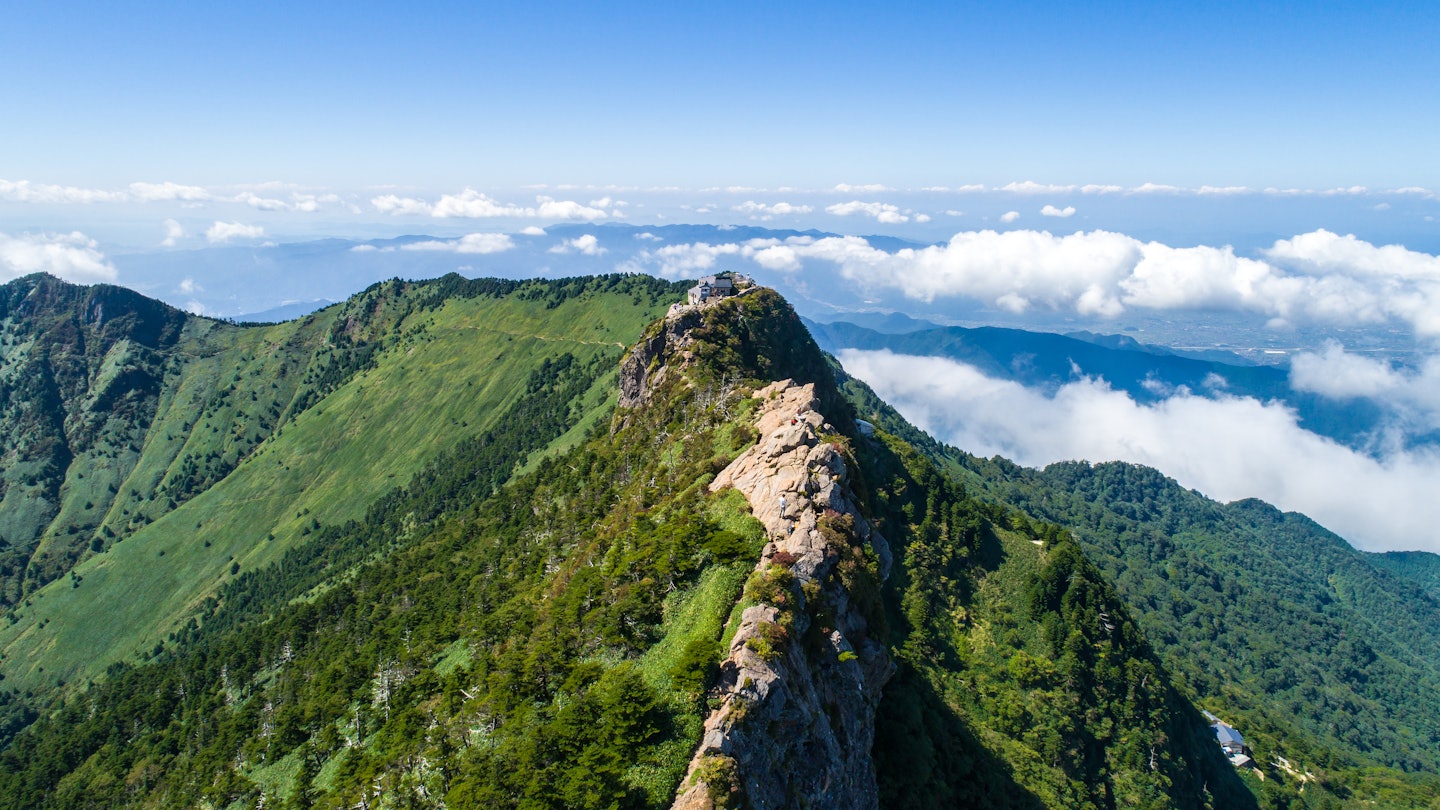
Mount Ishizuchi in Ehime, Japan. Yoshinori Okada/Shutterstock
Shikoku is well off the beaten track followed by most travelers to Japan. Throughout history, the country’s fourth-largest island has evoked a sense of mystery and even today visitors feel as if they’re setting out on a trip of discovery when they head to Shikoku.
Part of Shikoku’s shroud of mystery is due to its perceived remoteness and longstanding reputation as a place for religious ascetic practice. For 1200 years, Buddhist pilgrims have been walking around the island's 88 Sacred Temples in their never-ending search for enlightenment.
The island has four distinct regions, hence the name shi (four) and koku (region). Before the days of air travel, the only way to reach Shikoku was by boat, and up until the mid-1980s, it took a major effort to get there.
But nowadays there are three bridge systems linking it with Honshū – one with railway tracks – and aircraft regularly fly into the four main cities. With the doors wide open, visitors from all over the world can enjoy Shikoku's attractions.
Here’s our list of the top things to do during your Shikoku island travels.
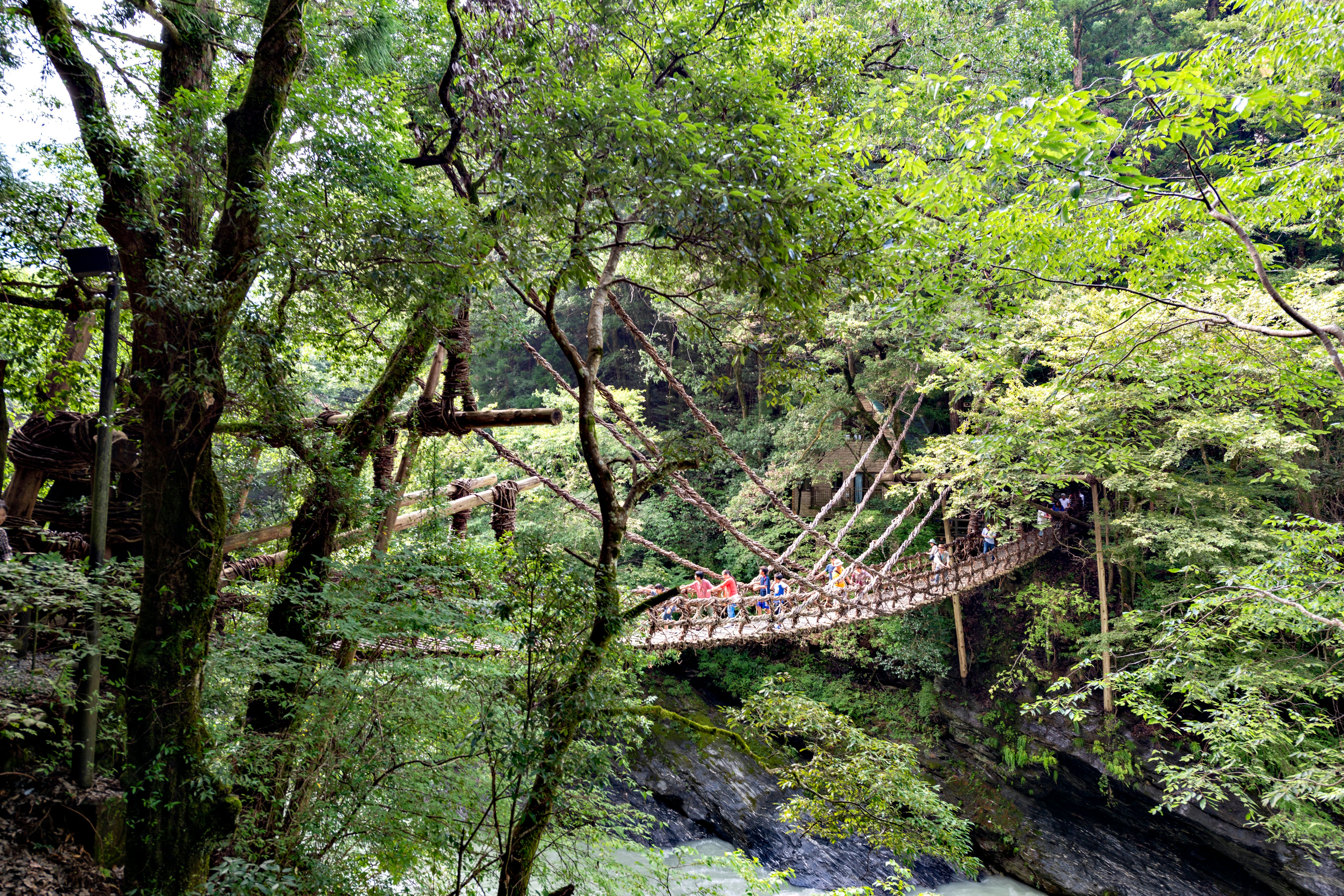
Tokushima Prefecture
1. Dance until you drop at the Awa-odori
Held in mid-August, Awa-odori is the biggest bon (festival for the dead) dance in Japan. Over a million people turn up in Tokushima city each year to watch dancers rhythmically sway through the streets, accompanied by shamisen (three-stringed guitars), taiko (drums) and fue (flutes). Colorful groups represent villages from throughout the prefecture in a four-day party to honor their ancestors.
2. Explore the remote Iya Valley
To explore Shikoku nature, you’ll want your own wheels to get into this rugged, remote valley in the central mountains, long a haven for those on the run – most famously, members of the vanquished Heike clan following defeat to the Minamoto during the 12th-century Gempei wars.
Here you’ll find rivers crisscrossed with kazura-bashi (vine bridges); Nagoro, a dwindling village now populated by kakashi (life-sized scarecrows); and at the head of the valley, a trail up Tsurugi-san, the island’s second-highest peak.
3. Cruise into the Naruto Whirlpools
Tides produce spectacular whirlpools in the shallow, narrow strait between Shikoku and Awaji Island, where the Inland Sea meets the Pacific Ocean off Shikoku’s northeast coast. Head out on a sightseeing boat for a roller coaster–like ride through swirling waters. Or for a less stomach-churning view, walk out on the Uzu-no-michi Viewing Walkway, which hangs below the Naruto Bridge, 42m (140ft) above the swirling action.
4. Ride the cable car up to Tairyū-ji
While a millennium of walking pilgrims have had to struggle up steep paths to reach the mountaintop Tairyū-ji – Temple 21 of Shikoku’s legendary 88 temples – modern visitors can take an exciting 2.7km (1.7-mile) aerial cable car to this atmospheric haven from the valley below. Tairyū-ji oozes history and sacredness with towering cedar trees, ancient temple buildings and chanting pilgrims.
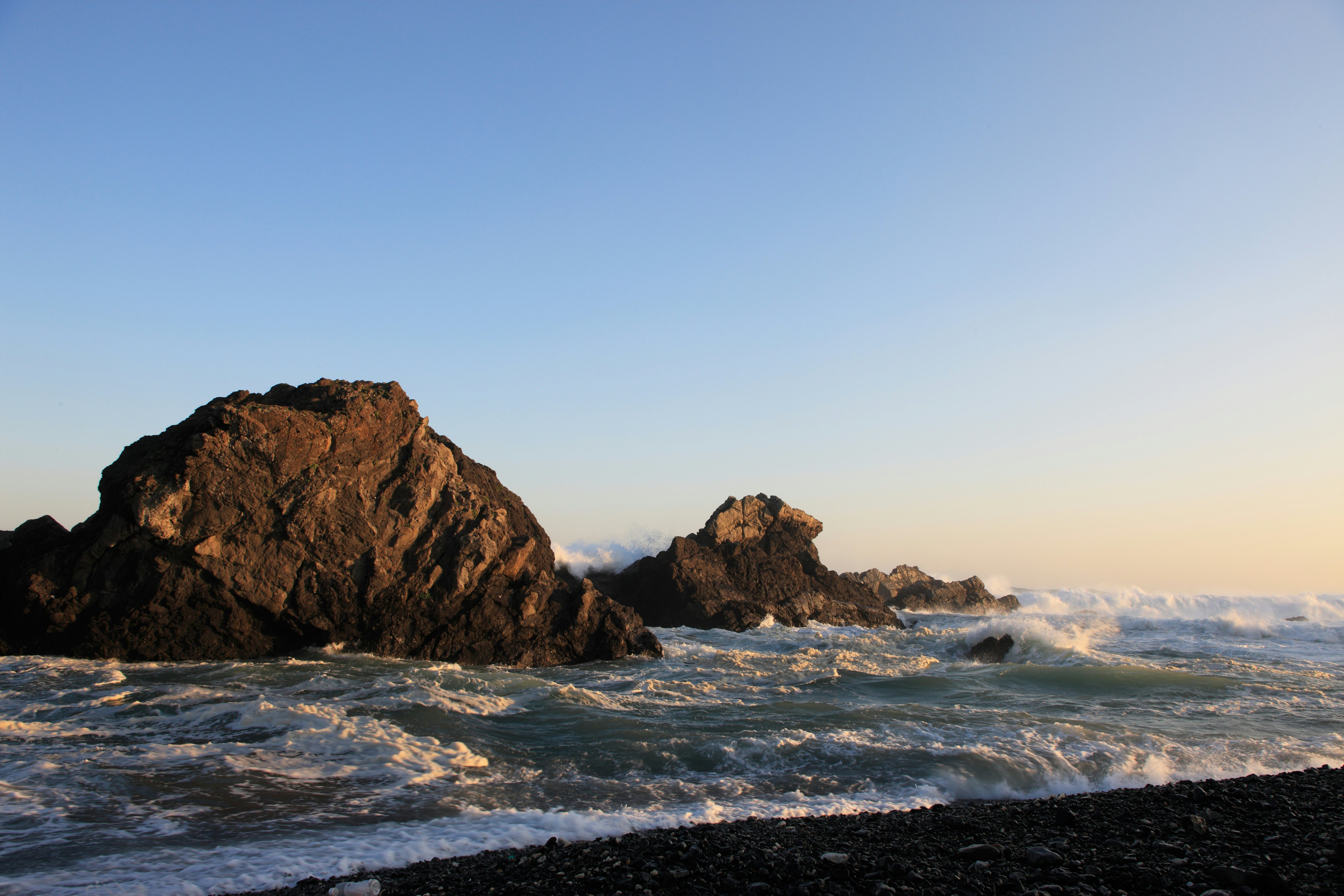
Kōchi Prefecture
5. Try local delicacies at Hirome Ichiba
Kōchi city’s cheap-eats scene is centered around Hirome Ichiba, nicknamed Kōchi’s kitchen, a market of around 70 stalls in a building below the city’s impressive castle. There’s no bad time to go, but to view the Kōchi populace enjoying local food and drink at the communal tables, aim for evenings or weekends, when the place is positively hopping. Make sure to try katsuo-no-tataki (seared bonito), considered the soul food of Kōchi.
6. Search for enlightenment at Muroto-misaki
Kōchi prefecture’s great southeastern cape juts out into the Pacific Ocean, where it's often battered by pounding waves and howling typhoons. On a good day, however, it’s a wondrous spot – the place where Kōbō Daishi, founder of Shingon Buddhism and the saint who founded the 88-temple pilgrimage, is said to have attained enlightenment. Check out the early 9th-century hilltop temple, Hotsumisaki-ji, as well as a bathing hole among the rock pools.
7. Shop at Kōchi’s Sunday market
Going strong for more than 330 years, Kōchi city’s Sunday street market boasts 400 stalls stretching east from the main gate at the foot of Kōchi Castle. Along with a boggling array of tantalizing street foods, you’ll find fresh local produce, dried fruit, homemade pickles and Kōchi-grown green tea. Local souvenirs include hand-forged Kōchi kitchen knives, wooden masks and fishing-boat flags.
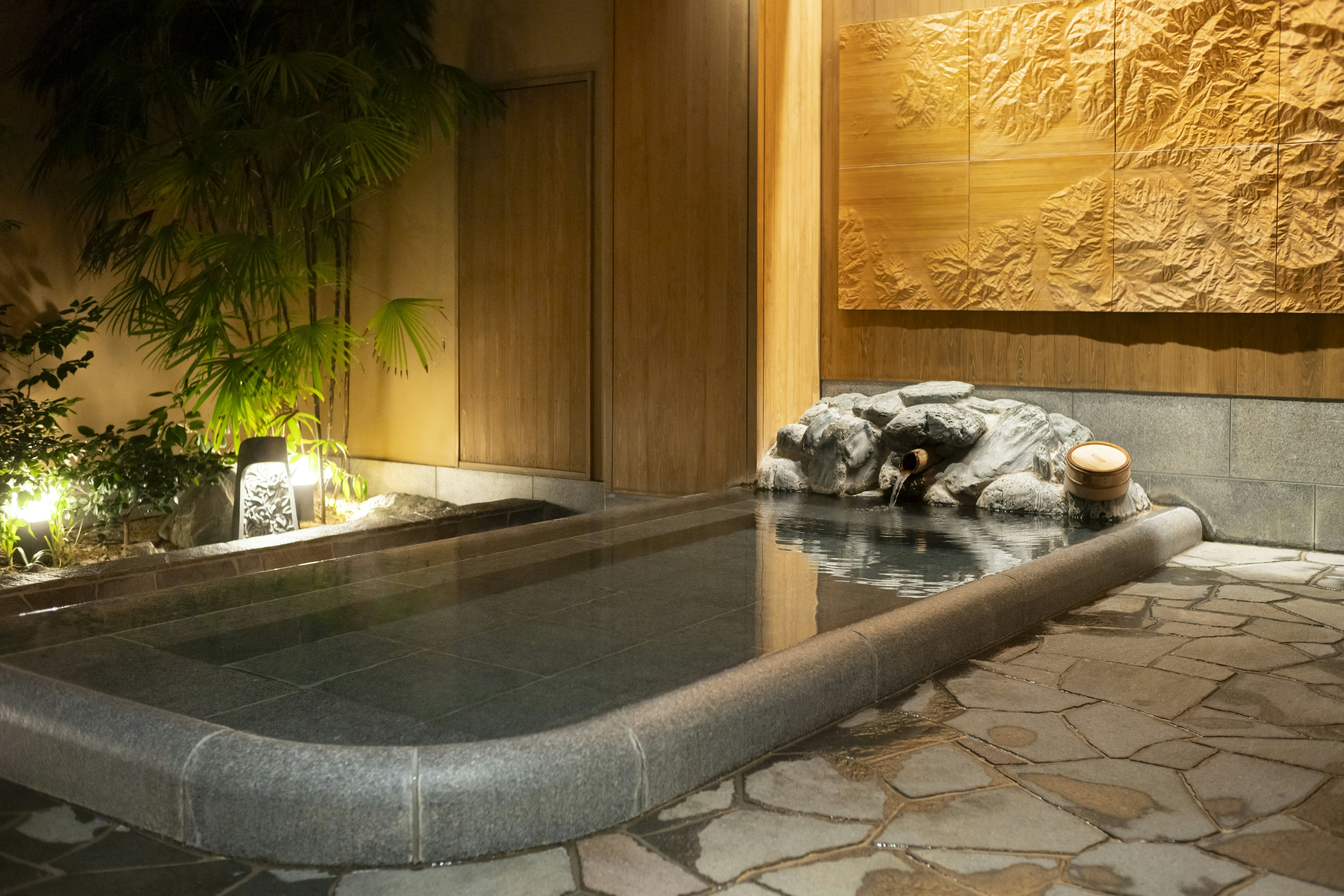
Ehime Prefecture
8. Soak in the soothing waters of Dōgo Onsen
Matsuyama city’s Dōgo Onsen Honkan is a 19th-century public bathhouse built over ancient hot springs, made famous in Natsume Soseki’s 1906 novel Botchan. It is the place to go for a soak, despite building renovations planned to last until 2026.
Dōgo Onsen has two other modern bathing complexes nearby. In the eastern part of the city, the Dōgo Onsen area has a plethora of hotels and ryokan, most sporting their own onsen (hot springs), plus a bustling township of arcades leading up to the Honkan bathhouse.
9. Clamber around inside Matsuyama Castle
Perched high above the city on Mt Katsuyama, Matsuyama-jō is one of Japan’s finest surviving castles. You can skip most of the climb up to the castle entrance by taking an aerial cable car, but the walk is a pleasant one. The path winds around massive stone walls before leading into the castle itself, where there are wooden stairs and ladders to be climbed, narrow corridors to be negotiated, towers to be peeked out of and a treasure trove of artifacts to be examined.

10. Climb Ishizuchi-san, the highest peak in western Japan
Shikoku’s highest peak is an enjoyable ascent, more so if you run into Shintō mountain ascetics on the trail. This holy mountain can be climbed by a number of routes: from Nishi-no-kawa with the use of an aerial ropeway, or from Tsuchi-goya with your own wheels.
To test your mettle, take the kusari (chain) routes near the peak, using the steel chains embedded in the rock to pull yourself up steep spots. There's also a roundabout route to the hut at the top for those inclined to take it.
11. Stroll the Yōkaichi historic district of Uchiko
The small town of Uchiko was once known as a producer of fine vegetable wax, winning awards at world expositions in Chicago (1893) and Paris (1900). The town’s preserved main street features museums, souvenir and craft shops, accommodations and tea houses in cream-colored plaster-walled buildings – an extremely convivial and historic atmosphere. Watch traditional candlemakers at work at Ōmori Wa-rōsoku.
Kagawa Prefecture

12. Admire art on the Inland Sea island of Naoshima
North of Takamatsu city and reached by ferry, Naoshima has become a world-renowned Shikoku attraction with some of Japan’s best contemporary art, plus works by international names, displayed in magnificent museums designed by award-winning architect Tadao Ando. See Yayoi Kusama’s Red Pumpkin, pieces by Andy Warhol, David Hockney and Jasper Johns and several of Monet's water lily paintings. The Art House Project has rejuvenated a run-down area with creative installations by contemporary artists.
13. Climb to the inner shrine of Konpira-san at Kotohira
Tell any older Japanese person that you’ve been to Shikoku, and they’ll ask if you climbed Konpira-san. A Shintō shrine dedicated to the god of seafarers, its 1368 stone steps are seen as a rite of passage for many Japanese people. There’s a whole town at the foot of the walk catering to Japanese visitors, and though the thousand-plus stone steps may not appeal, the Shintō gates, halls and pavilions along the way are captivating, as are the views.
14. Enjoy the gardens and teahouses of Ritsurin Park
Takamatsu city’s Ritsurin-kōen is known throughout Japan as one of the country’s most beautiful gardens. Dating from the mid-1600s, it took more than a century to complete as a “walking garden” for the local daimyō (lord) and boasts a series of ponds full of brightly colored carp, bridges, islands and traditional tearooms. Wander the winding paths and imagine yourself as an influential feudal lord.

15. Taste the local noodle delicacy – Sanuki-udon
Sanuki is the former name of Kagawa prefecture, and while it may be the smallest of Japan’s 47 districts, it certainly packs a wallop in terms of national recognition. Cheekily calling itself udon-ken (udon prefecture), Kagawa is the place to try udon (thick wheat noodles) in the local broth. You won’t have to look too hard to find a Sanuki-udon shop – it may seem like there’s one on every corner. This is cheap, local comfort food at its best. Don’t leave Kagawa without trying a bowl or two.











